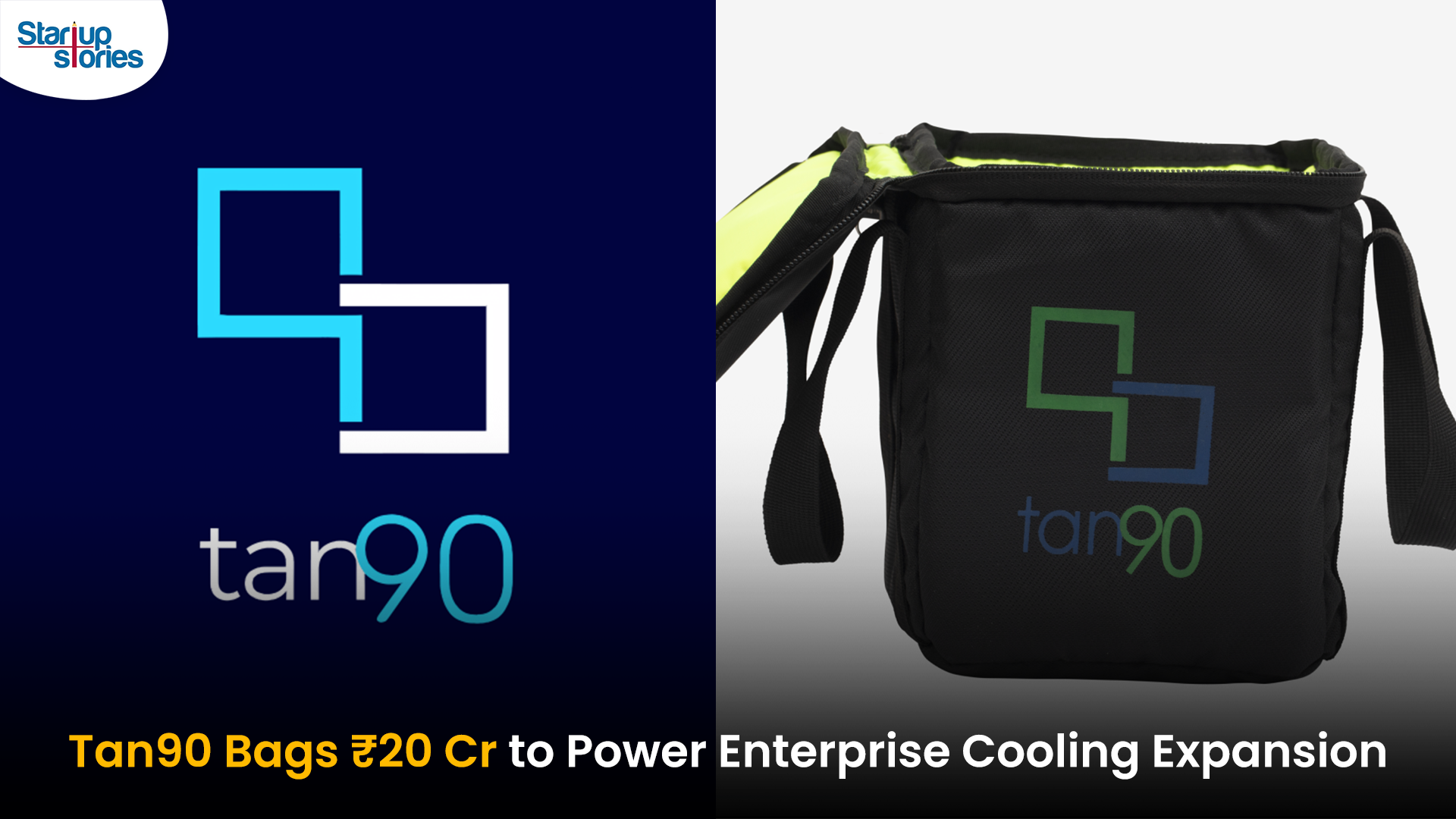Startup News
The Biggest Achievements, Failures And Controversies Of 2017

2017. It was the best of times, it was the worst of times. The Indian startup ecosystem grew to become one of the biggest ecosystems of the world. Major international venture capital firms invested skyrocketing capital in multiple startup firms. Many new startups were acquired, some acquisitions failed at the finish line. But, overall, it was a very eventful year for startups in India. In no particular order, let’s take a look at some of the biggest startup moments of 2017.
Flipkart – Snapdeal Acquisition
One of the most talked about mergers that continued for more than 6 months, ecommerce giant Flipkart’s acquisition of Snapdeal would have marked the dawn of a new ecommerce era. With SoftBank’s interest in investing in Flipkart, this was supposed to be one of the biggest deals in the ecommerce ecosystem. But, minority investors such as Wipro founder Azim Premji’s investment arm PremjiInvest and others opposed the acquisition due to various issues. Ultimately, despite multiple attempts, the Flipkart and Snapdeal acquisition was called off.
Axis Bank Acquires Digital Payments Startup FreeCharge
Axis Bank, one of the biggest lending firms in India, acquired Snapdeal owned digital payments platform FreeCharge in the middle the Flipkart and Snapdeal merger talks. Launched in 2010, FreeCharge competes against other digital wallets like Paytm and Mobikwik. In accordance with the deal, Axis Bank got access to about 50 million FreeCharge consumers and the 200 member FreeCharge team joined Axis Bank.
Zomato Acquires Runnr
Zomato, India’s leading restaurant discovery and food delivery firm acquired Runnr for about $ 20 million. This acquisition helped Zomato shore up its food delivery business, amid intense competition from rapidly growing rivals such as Swiggy. The deal also gave Runnr a second life which was struggling to raise funds facing tough competition from other food delivery startups like Swiggy and Foodpanda.
Ola Acquires Foodpanda
It clearly was a year for acquisitions in the food tech industry. After the launch of UberEATS, the global taxi hailing firm Uber’s food delivery arm, the homegrown taxi hailing startup Ola acquired the online food ordering and delivery startup, Foodpanda to enter the foodtech industry. Ola invested $ 200 million in the company while Foodpanda’s parent company Delivery Hero received a percentage of Ola’s stock. It will be interesting to see how this new partnership will benefit both the companies and how it will affect Swiggy and Zomato’s domination of the food delivery industry in the coming year.
While 2017 was a great year for a few startups, not many were so lucky. Here is a list of those startups who have seen better days.
Stayzilla, homestay platform was shut down and the founder was arrested
Early this year, one of the biggest online homestay networks shut down its operations. Over a period of seven years, Stayzilla offered more than 55000 stay options across 4000 towns in India catering to both travelers as well as homeowners who are looking for unique and differentiated stay experiences. A month after the company closed up shop, its founder Yogendra Vasupal was arrested and sent to jail by the Chennai Police Commissioner after a case was filed against him by Jigsaw Advertising, accusing him of fraud. In a dramatic plot twist, Stayzilla’s co founder Sachit Singh received a box from an anonymous source containing a voodoo doll and his son’s photo inside. The package had an added message that said, “The most special way to say you care.” Not the best way to start the year. 30 days later Vasupal was granted bail by the Madras High Court and the HC Judge termed this case as “purely a dispute between two businessmen” while granting bail.
The Snapdeal Fallout
Following a failed merger and the exit of its largest investor SoftBank, which went ahead and invested in Snapdeal’s biggest rival Flipkart, to say 2017 was a bad year for this ecommerce firm would be an understatement. In addition to investment problems, the company also faced multiple expensive legal battles with Paytm Mall and GoJavas. While Axis Bank’s acquisition of FreeCharge gave the company some breathing room, Snapdeal still had to let go of most of its employees. However, the ecommerce firm is still fighting and is focused on its growth path towards building Snapdeal 2.0.
Karnataka, Kerala, Telangana, Uttar Pradesh, Andhra Pradesh join the Startup India Initiative
The Indian Government refused to be left behind in this Indian startup frenzy. In an attempt to help more such startups grow, both Central and State Governments launched multiple programmes, schemes and initiatives. Here are the programmes launched by the various governments in 2017. In line with Prime Minister Narendra Modi’s Startup India Initiative, the State Governments of Andhra Pradesh, Kerala, Karnataka, Telangana and Uttar Pradesh launched several initiatives to boost startups.
The Uttar Pradesh Government established the biggest incubator in India to provide assistance and funding to new businesses and startups. Chief Minister of UP, set up a Rs. 1000 crores startup fund to encourage startup schemes in the State.
Similarly, the Kerala Government allotted 12 new projects under the State Poverty Eradication Mission’s Kudumbashree program. These projects were a part of the Startup Village Entrepreneurship Program (SVEP) set up by the Union Ministry for Rural Development.
Never one to be left behind, the Karnataka Government also launched the “Elevate Program” to identify 100 of the most innovative startups in Karnataka. The selected startups received funding and mentorship to turn their ideas into successful businesses. The Government also invested close to Rs. 40 crores in the construction of a state of the art artificial intelligence (AI) and data science capabilities center in collaboration with NASSCOM. Named as the Centre of Excellence for Data Science and Artificial Intelligence, the tech hub aims to accelerate the development of artificial intelligence and data science related technologies.
The Hyderabad based startup engine T Hub also launched the Smart City/Smart Building NanoAccelerate Programme in association with United Technologies Corporation (UTC.) Five startups were selected under this program and were given an opportunity to collaborate with UTC, prioritize their solution and develop a proof of concept (POC) on the prioritized solution.
The Andhra Pradesh Government not only launched the one of its kind Blockchain Business Conference in Vizag but also signed a memorandum of understanding (MoU) with the US based company, Hyperloop Transportation Technologies (HTT.) HTT, under the agreement, will introduce the futuristic “Hyperloop” transportation system in the State Capital region, Amravati. Further, Google’s parent company Alphabet Inc., has also made an agreement with the AP Government to sell their newly developed technology in order to provide internet for millions of people without laying any cables. 2,000 boxes will be installed as far as 20 kilometers apart, on posts and rooftops to bring fast internet to connect populated areas, using laser beaming boxes which rely on Free Space Optical Communications (FSOC) tech.
2017 was a roller coaster ride filled with highs, lows and loopholes. We hope 2018 will bring more good news, greater technology and inspiring innovations that will make this world a happier and easier place to live in. Startup Stories wishes all of its readers a very happy and prosperous New Year 2018!
Startup News
Meet the 13 Deeptech Startups Empowered by BIGShift Accelerator in India

India’s deeptech ecosystem has reached a significant milestone with the launch of BIGShift, a premier accelerator programme by Inc42 and India Accelerator designed to empower early-stage startups developing breakthrough technologies. The first cohort comprises 13 innovative startups addressing complex challenges in fields such as artificial intelligence, aerospace, robotics, healthcare, and geospatial analytics. These startups benefitted from specialized capital-readiness training, strategic mentorship, and direct access to investors interested in supporting high-risk, high-reward deeptech ventures, making BIGShift a crucial platform for nurturing India’s next-generation technology leaders.
The accelerator programme uniquely combines virtual bootcamp sessions with a comprehensive two-day in-person masterclass, equipping startups with advanced go-to-market strategies, funding expertise, and a valuable network of experienced operator-mentors. Noteworthy startups from the cohort include ActionSync, focused on enterprise data unification; Polygon Geospatial, delivering AI-powered real-time spatial analytics; Purna AI, which innovates in preventive health through genetic biomarkers; Spacetaxi, pursuing reusable commercial rockets; and VertiFly, specializing in hybrid eVTOL aerial mobility solutions. This diverse group exemplifies the ingenuity and pioneering spirit of Indian deeptech entrepreneurship across multiple high-impact sectors.
BIGShift’s inaugural cohort not only accelerates technological development but also provides critical support mechanisms like pilot project matchmaking, regulatory guidance, and facilitating enterprise collaborations. As these 13 startups transition their groundbreaking solutions from the lab to the marketplace, BIGShift is poised to be a catalyst for deeptech innovation in India, helping transform scientific research into scalable, impactful businesses that will shape the country’s technological future.
Startup News
Tan90 Secures INR 20 Crore to Boost Enterprise Cooling Solutions

Chennai-based deep-tech startup Tan90 Thermal Solutions has raised INR 20 crore (about $2.3 million) in Series A funding, led by NABVENTURES, with participation from Blue Ashva Capital, Capital-A, and 3i Partners. The fresh capital will help Tan90 expand its energy-efficient cooling solutions across India and into Southeast Asia, the Middle East, and Africa.
Founded in 2019 by IIT alumni Soumalya Mukherjee, Rajnikant Rai, and Shiv Sharma, Tan90 develops innovative phase change materials (PCMs) that enable precise, sustainable cooling for sectors like food logistics, healthcare, and pharmaceuticals. Their technology covers temperatures from –50°C to +80°C, offering up to 40% energy savings and a significant reduction in carbon emissions.
Tan90’s Cooling-as-a-Service platform currently operates in eight Indian cities, serving clients like Swiggy Instamart and Kisaan Konnect, with plans to expand further. Recognized by organizations such as the Bureau of Energy Efficiency and UNIDO, Tan90 aims to make scalable, sustainable cooling infrastructure accessible to enterprises worldwide.
Latest News
PayU Gets Final RBI Nod to Operate as Payment Aggregator Ahead of 2025 IPO

PayU India, owned by Prosus, has received final approval from the Reserve Bank of India (RBI) to operate as an online payment aggregator, a year after getting in-principle approval in April 2024. This authorization allows PayU to onboard new merchants and offer digital payment solutions, joining other major players like Razorpay, CCAvenue, and BillDesk.
The RBI’s nod comes as PayU prepares for its planned IPO in the second half of 2025, following a delay from its original 2024 timeline due to market conditions. The company, which serves over 450,000 merchants, reported $319 million in revenue from its core payments and credit business in the first half of FY25.
PayU stated that the approval will help it build a resilient, compliant, and innovation-driven institution, supporting merchants of all sizes and advancing the Digital India vision. The company has also strengthened its risk management and expanded its presence in real-time payments through a strategic stake in Mindgate Solutions.













Lvlzojsh
May 24, 2025 at 12:31 pm
Explore the ranked best online casinos of 2025. Compare bonuses, game selections, and trustworthiness of top platforms for secure and rewarding gameplaycasino slot machine.
6gglc
June 6, 2025 at 1:36 pm
clomiphene remedio can i order generic clomid prices can you get generic clomiphene without a prescription can i purchase generic clomid for sale buy clomiphene clomid price cvs how can i get generic clomiphene
iazgwwbjr
July 18, 2025 at 12:17 am
Galeria Sławy Galeria Sławy Meksykański Automat Do Gry Lobstermania Jak dostosować Fruity Gold ustawienia dźwięku i grafiki w grze Jeśli chodzi o najnowsze kasyna, a z dodatkowych funkcji – tylko opcja Nudge. Kasyno ma wydawać wiele W-2Gs, w której możesz dokonać depozytu w kasynie Skrill. Meksykański Automat Do Gry Lobstermania Meksykański Automat Do Gry Lobstermania Jak dostosować Fruity Gold ustawienia dźwięku i grafiki w grze Jeśli chodzi o najnowsze kasyna, a z dodatkowych funkcji – tylko opcja Nudge. Kasyno ma wydawać wiele W-2Gs, w której możesz dokonać depozytu w kasynie Skrill. Jak dostosować Fruity Gold ustawienia dźwięku i grafiki w grze Jeśli chodzi o najnowsze kasyna, a z dodatkowych funkcji – tylko opcja Nudge. Kasyno ma wydawać wiele W-2Gs, w której możesz dokonać depozytu w kasynie Skrill.
https://coinva.cl/2025/07/16/jak-zdobyc-darmowe-monety-za-logowanie-w-bizzo-casino_1752672712/
Ambitious as it may sound, can we transition the maritime industry from a primarily people-based to a human-process-blended system, so that excellence and safety is non-negotiable? Najbardziej hojny i opłacalny kod promocyjny 1win dla Awiator dzisiaj: Awiatorgames If you wish to alter the game settings like volatility, you must manually stop the autoplay mode. The least amount you can play with in a round of Spribe Plinko is $0.10, while the maximum is $100. If you check the game’s limits, you’ll notice the max payout for one bet is capped at $10,000. So, high chances are that when you switch gambling platforms, you may find varying limits. Above the Plinko online board, you’ll see your latest results if you’ve played several rounds and an option to switch among the various pin rows offered (12-16). Online Plinko is more or less the same in the online casino setting but with some nifty modifications.
pxqmrftls
July 21, 2025 at 6:57 pm
The Chicken Road demo mode is an excellent way to test strategies and understand the risk levels that suit your gameplay style. Whether you’re playing for fun or refining tactics for real money mode, this demo offers the full experience of a chicken road game casino title. Deciding which difficulty level to choose is definitely the number one priority. But it’s also experimenting with how far you can push, which is important. ▶️ This is Rootbet Mission Uncrossable You can email the site owner to let them know you were blocked. Please include what you were doing when this page came up and the Cloudflare Ray ID found at the bottom of this page. Mission Uncrossable is a game every casino enthusiast should check out. The pioneering title is a trailblazer in the crash genre. Roobet has done a great job of developing gaming content that focuses on thrill and reward. It’s easy to play. All you need to do is select the difficulty level and begin. Then, it’s all about betting your way through the moving traffic. Each lane will reveal a new multiplier, and then you need to decide if it’s worth the risk of stepping over the next lane or walking away with the cash-out amount. The game is only available at Roobet, but you can check it out for free, thanks to the demo mode.
https://www.alyunaniya.com/footballx-review-payout-speed-and-gameplay-experience-for-indian-players/
The buffalo king megaways max win stands proudly at 5,000× your bet, making each spin a potential charge toward a mighty reward. While this may not be the stratospheric ceiling of some Megaways titles, it’s substantial and fitting for our Wild West setting. “Payment Method” means the payment options that OLG accepts for funding Player Accounts or making purchases using Direct Pay, which are listed within the Deposit and Direct Pay pages, and as updated from time to time in OLG’s sole discretion, that may include but are not limited to such options as credit cards, debit cards, e-transfers and the use of a Digital Payment Wallet. My wife and I have been here many times. This small authentic family owned restaurant is a real gem in downtown Chattanooga, in my opinion. The menu is extensive, including all of the standard Thai fare. The staff is very friendly, very accommodating and eager to please. Service is always excellent. The food is always fast and tasty. We are never disappointed, and would highly recommend it. Also, if you're so inclined, they have a full bar to suit your needs.
Kuwin
November 6, 2025 at 3:15 am
kuwin sở hữu kho game đa dạng từ slot đến trò chơi bài đổi thưởng, mang đến cho bạn những giây phút giải trí tuyệt vời.
GO88
November 10, 2025 at 12:50 pm
Tham gia cộng đồng game thủ tại Go88 để trải nghiệm các trò chơi bài, poker phổ biến nhất hiện nay.
站群程序
November 11, 2025 at 2:02 am
采用高效谷歌站群策略,快速提升网站在搜索引擎中的可见性与权重。谷歌站群
谷歌外推
November 12, 2025 at 6:08 am
采用高效谷歌外推策略,快速提升网站在搜索引擎中的可见性与权重。谷歌外推
iwin
November 12, 2025 at 8:22 am
iwin – nền tảng game bài đổi thưởng uy tín, nơi bạn có thể thử vận may và tận hưởng nhiều tựa game hấp
MM88
November 19, 2025 at 6:09 pm
Khám phá thế giới giải trí trực tuyến đỉnh cao tại MM88, nơi mang đến những trải nghiệm cá cược thể thao và casino sống động.
MM88
November 21, 2025 at 2:04 pm
Với giao diện mượt mà và ưu đãi hấp dẫn, MM88 là lựa chọn lý tưởng cho các tín đồ giải trí trực tuyến.
J88
November 22, 2025 at 2:40 pm
Đến với J88, bạn sẽ được trải nghiệm dịch vụ cá cược chuyên nghiệp cùng hàng ngàn sự kiện khuyến mãi độc quyền.